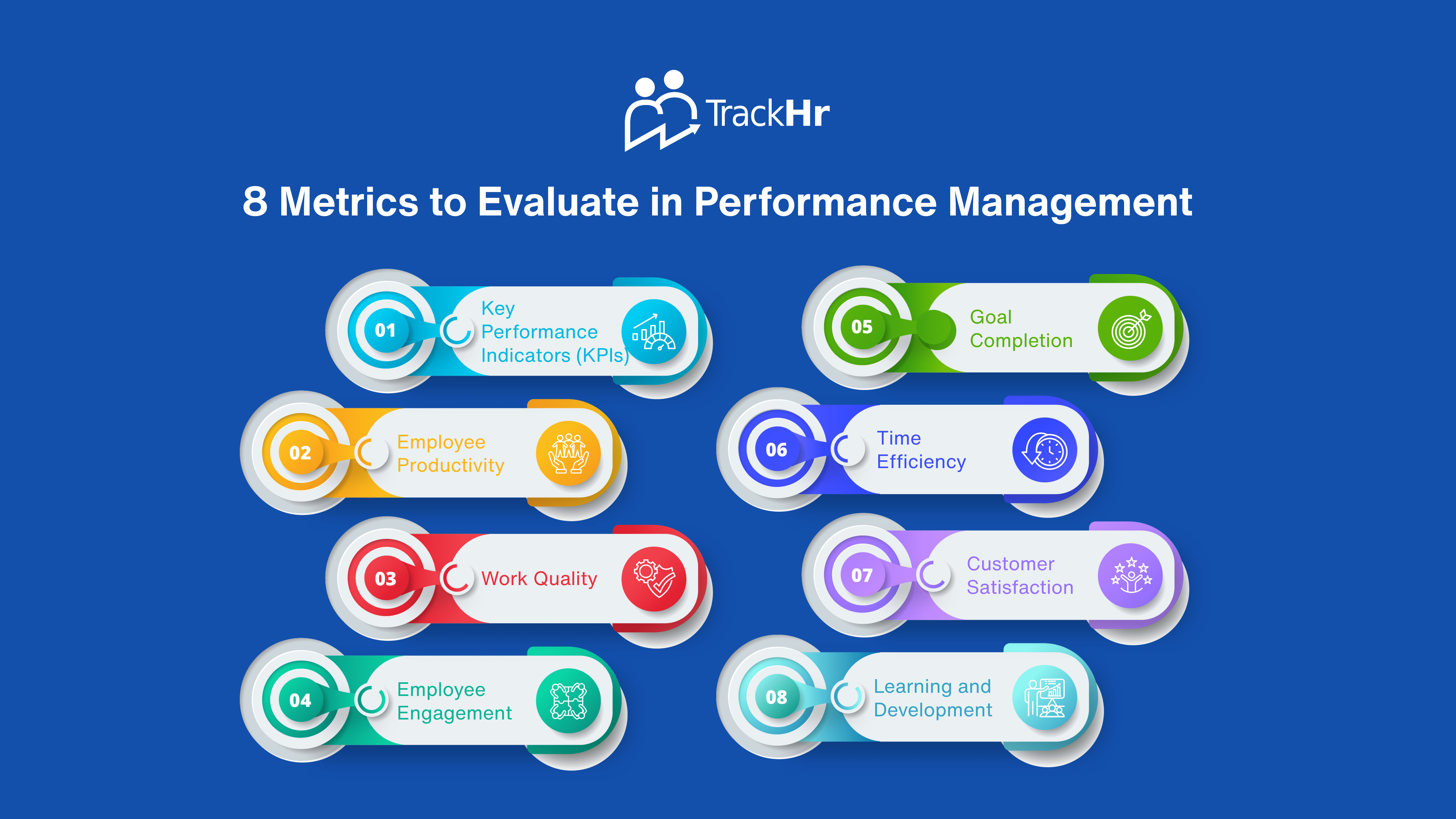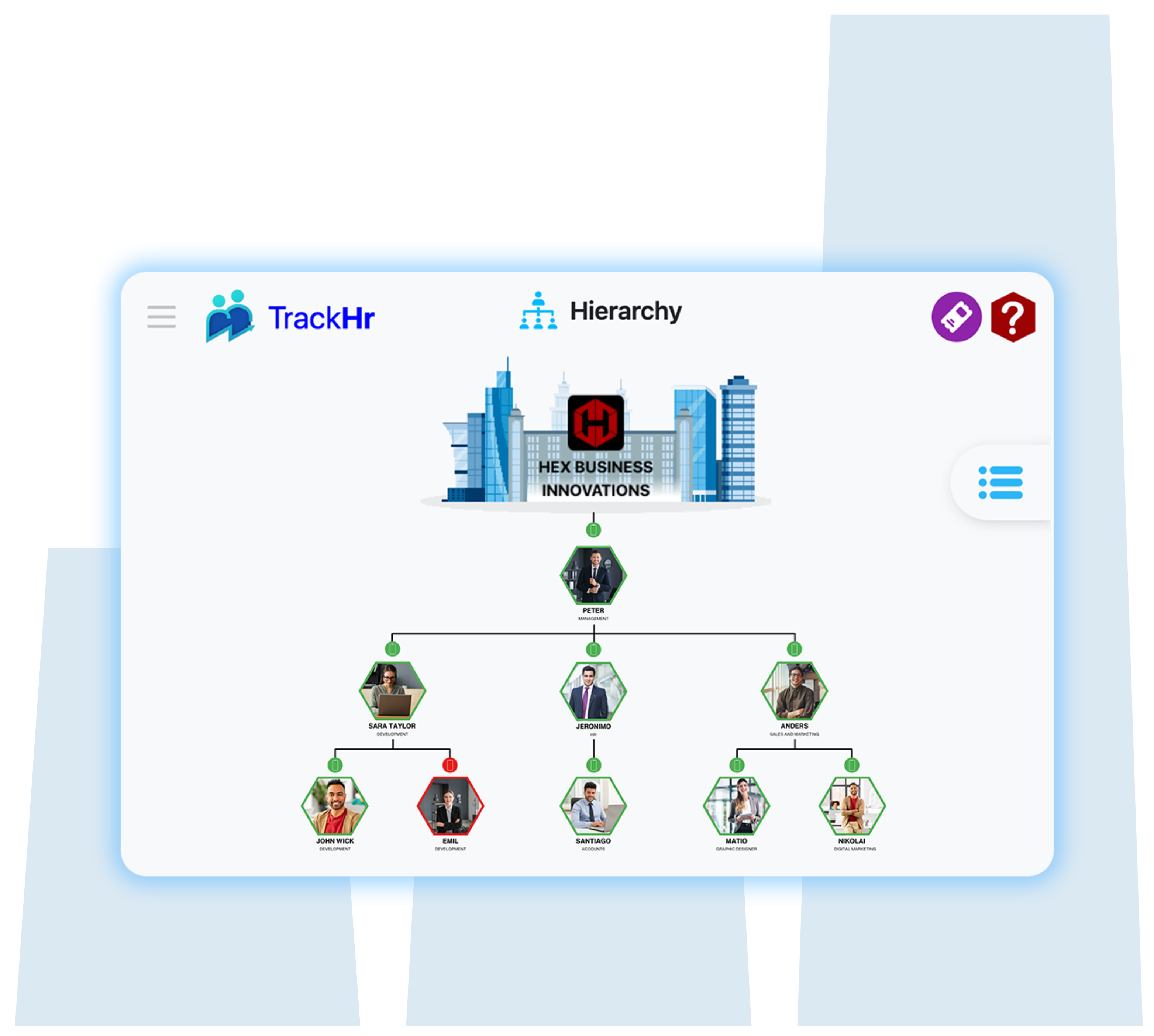Blog
8 Metrics to Evaluate in Performance Management
- April 2, 2025
- 6:42 am

Performance management plays a vital role in achieving organizational success. It aligns employees’ contributions with business objectives and fosters a culture of responsibility and ongoing improvement. To achieve these goals, tracking specific performance metrics is essential. Here are eight key metrics to focus on in performance management:
1. Key Performance Indicators (KPIs)
KPIs are quantifiable measures that indicate how effectively an individual, team, or organization is meeting objectives. Examples include revenue growth, customer satisfaction ratings, and project completion rates. Organizations should customize KPIs to align with their strategic priorities to ensure relevance and precision.
2. Employee Productivity
Productivity measures the amount of work an individual or team completes relative to the resources used. Metrics for this include:
- Revenue generated per employee
- Number of tasks completed within a set timeframe
- Efficiency in meeting assigned goals
Tracking productivity helps identify high performers and areas requiring additional support or training.
3. Work Quality
While productivity is essential, maintaining high-quality work ensures output meets organizational standards. Metrics for assessing work quality include:
- Error frequency
- Customer complaints
- Feedback from supervisors or clients
High-quality output contributes to customer satisfaction and business success.
4. Employee Engagement
Engaged employees tend to be more productive, creative, and committed to their roles. Engagement can be evaluated through:
- Employee surveys (e.g., Employee Net Promoter Score or eNPS)
- Turnover and retention rates
- Patterns of absenteeism
Elevated engagement levels often reflect a positive workplace culture and alignment with organizational goals.
5. Goal Completion
Monitoring how effectively employees meet their individual or team objectives provides direct insight into performance. Metrics include:
- Percentage of completed goals
- Timeliness in meeting deadlines
- Achievement of key milestones
These metrics ensure that daily activities align with broader organizational objectives.
6. Time Efficiency
Effective time management is critical for productivity and meeting deadlines. Time-related metrics include:
- Time allocated to specific tasks
- Adherence to project schedules
- Average time taken to complete recurring assignments
Analyzing these metrics can help identify inefficiencies and streamline workflows.
7. Customer Satisfaction
For roles involving customer interaction, satisfaction is a crucial performance indicator. Metrics include:
- Net Promoter Score (NPS)
- Customer feedback and testimonials
- Customer retention and churn rates
Satisfied customers are often a reflection of strong employee performance and service quality.
8. Learning and Development
Ongoing learning is critical for employee growth and adaptability within an organization. Metrics in this area include:
- Completion rates for training programs
- Certifications or qualifications earned
- Progress in skill development over time
Investing in employee development enhances performance, morale, and retention.
Conclusion
Measuring the right performance metrics is essential for aligning employees and teams with organizational goals. These metrics foster a culture of accountability and continuous improvement. By focusing on these eight areas, organizations can establish a performance management system that drives both individual and collective success.
Table of Contents
Exhausted from managing performance management manually?






